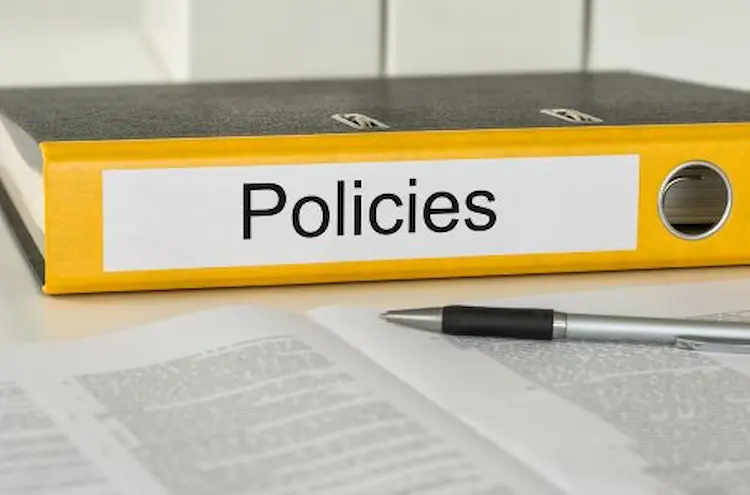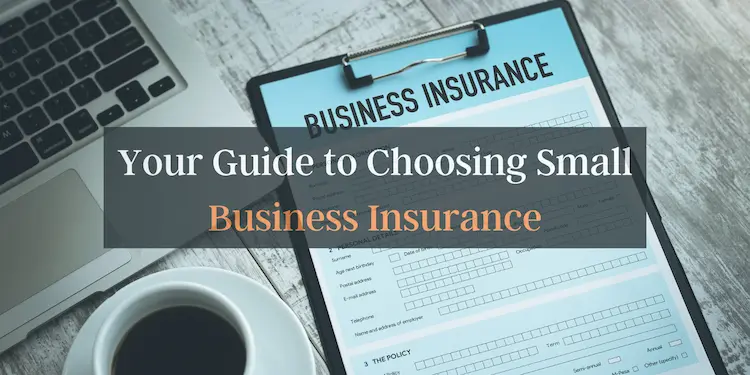If you’re a small business owner, insurance is something that can be easily overlooked or put off. But when it comes down to it, having the right amount of coverage—and the right types of coverage—is essential to protecting your business and its asset.
Here’s what you need to know about choosing small business insurance:
Getting Insurance is a Good Investment
While it’s not the most exciting topic, insurance is an important investment for any small business owner to make. Insurance can help protect your business, your employees and customers, and your assets from various types of losses.
It’s also a good way to establish credibility as an established company that’s serious about protecting its interests (and those around them).
While many people associate insurance with large corporations or government agencies—think of all those commercials featuring famous celebrities touting the benefits of car insurance—this type of coverage isn’t just for big businesses that have huge assets at stake.
In fact, in some cases it makes sense for a startup or small business to take out certain types of policies even if they don’t expect these policies will ever be called upon due to their size or lack thereof (e.g., worker compensation coverage).
What is Business Insurance, and Why Do You Need It?
Business insurance is a contract between you and an insurance company. It protects many of the risks faced by small businesses, including property damage, bodily injury to employees or others, and liability for damages caused by your business if someone is injured on the premises.
While business insurance isn’t required by law—and there are some states where it’s not necessary—it’s still a good idea to purchase coverage because it provides peace of mind in case something goes wrong at your shop or restaurant.
Business owners have several options when selecting policies; they can choose to purchase coverage through an agent or broker, who will help them find the right policy at an affordable price.
The medicare supplement and medicare advantages pros and cons of business insurance vary depending on the type of policy you buy, but most cover fire damage, theft, liability claims, and other accidents that can occur at your place of business.
Business insurance is important because it protects your assets from many risks that could result in significant losses if they were not covered by insurance.
Business Insurance and Home Insurance
Most people assume that business insurance and home insurance are the same things. They are not! Business insurance policies are more complicated than their home counterparts, so you need to do your research before buying a policy.
Also, they’re more expensive than standard home policies and they’re more important than home policies because they protect your most valuable asset: your business.
Types of Business Insurance

There are many types of business insurance. The most common include:
Management Liability Insurance
This type of coverage protects your business from any lawsuits related to employee injuries and harassment, property damage or theft, and other claims that can be brought against a company.
Business Owner’s Policy (BOP) Or Umbrella Policy
Similar to management liability insurance, this type of policy also protects your company in the event of lawsuits resulting from employee injuries or harassment as well as for property damage or theft.
Workers’ Compensation Insurance
Workers’ compensation pays employees who are injured on the job regardless of whether it was their fault or not. Workers’ compensation insurance is mandatory in most states and required by law.
If you’re not sure whether you need this type of coverage, consult with a licensed agent who can help guide you through the process.
Errors and Ommissions Coverage
Errors and omissions insurance protects you from being sued by a client for your mistakes. It is not, however, a substitute for professional liability insurance. In fact, errors and omissions coverage is often included in professional liability policies.
This type of insurance covers the cost of defending against claims that allege you were negligent in providing your services to the client. If you’re found liable by a court or jury, this coverage pays for legal fees and costs associated with settling out of court (with no guarantee that you’ll win).
Related Post: Why is Cargo Insurance Crucial For Your Business
Different Types of Policies

There are many types of policies, each with a different purpose. Some are designed to cover damage that may occur as part of a business’s operation—for example, fire insurance pays for repairs if your building burns down.
Other policies cover liability or employee benefits. You may also want to consider purchasing equipment and inventory coverage if you own expensive items that could be destroyed by theft or natural disaster.
Some policies take effect immediately when you purchase them; others require an additional step called “adding riders” before they become active. Riders add extra features to an existing policy that address specific needs not already covered by the base policy (for example, workers’ compensation).
Finally, some companies offer multiple options within their product line; these variations can include different deductible amounts or limits on certain kinds of claims (such as physical damage).
You Don’t Have to Go for the Most Expensive Policy
While it’s true that the costs of insurance policies vary widely, some policies are more expensive than others. Likewise, some policies are more comprehensive than others. And finally, some policies are more affordable than others.
You should shop around for the best deal before making a decision on which type of small business insurance will work best for your needs as a small business owner.
Healthcare Costs Continue to Rise
For small businesses, the cost of health insurance is a major concern. Depending on your industry and location, you may find that it’s difficult or impossible for your employees to afford coverage from an existing plan.
That’s why it’s important to have a good understanding of the options available through the state marketplaces before setting up your business or making any changes in coverage for yourself or your employees.
Additionally, there are several types of small group plans available through these marketplaces: employer-sponsored, individual (or non-employer sponsored), association group, and self-employed individuals.
There are also different levels concerning cost-sharing requirements such as out-of-pocket maximums (copays) and deductibles which can vary depending on whether they’re sold through an exchange marketplace or not; so be sure you understand what each plan entails before selecting one!
Conclusion on Choosing Small Business Insurance

As a small business owner, you’re probably already busy enough trying to make money and keep your business afloat. Finding the right small business insurance can be frustrating, especially when you’re not sure what you need.
But by being proactive and shopping around for the best value, you can make sure that your business is well-protected.
It’s essential not only for your peace of mind but also for the health and safety of everyone involved in your business to ensure that all bases are covered.
Doing thorough research before choosing what type of policy is best suited for your needs, will ultimately save both time and money in the long run.